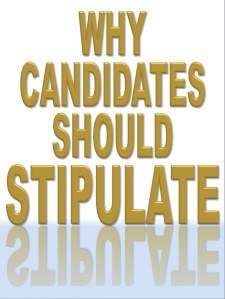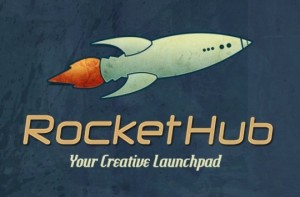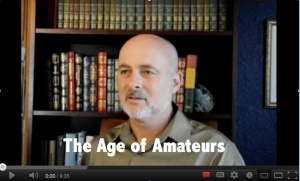Banned Books Week (September 30 – October 6) celebrates the freedom to read and to express ideas…even those that others might find objectionable. Classics that have been banned or challenged over the years include:

The Jungle, Catch-22, The Great Gatsby, The Grapes of Wrath, Beloved, Lolita, A Clockwork Orange, The Satanic Verses, I Know Why the Caged Bird Sings, and To Kill a Mockingbird.
Just in the last decade, campaigns have been waged against The Catcher in the Rye, Harry Potter, The Giver, and The Golden Compass. And, ironically... Ray Bradbury’s powerfully evocative Fahrenheit 451.

The Jungle, Catch-22, The Great Gatsby, The Grapes of Wrath, Beloved, Lolita, A Clockwork Orange, The Satanic Verses, I Know Why the Caged Bird Sings, and To Kill a Mockingbird.
Just in the last decade, campaigns have been waged against The Catcher in the Rye, Harry Potter, The Giver, and The Golden Compass. And, ironically... Ray Bradbury’s powerfully evocative Fahrenheit 451.
On a broader scale, censorship is an issue both topical and redolent, given President Obama's recent United Nations address about free speech and global turmoil over an amateurish, but provocative anti-Islam video. That YouTube video, “Innocence of Muslims” that has provoked riots and violence in Libya and
many other Muslim lands, leading to calls for governments to block access to the website. Meanwhile, YouTube issued a statement, "This can be a challenge because what's OK in one country can be offensive elsewhere. This video -- which is widely available on the Web -- is clearly within our guidelines and so will stay on YouTube."
many other Muslim lands, leading to calls for governments to block access to the website. Meanwhile, YouTube issued a statement, "This can be a challenge because what's OK in one country can be offensive elsewhere. This video -- which is widely available on the Web -- is clearly within our guidelines and so will stay on YouTube."
No issue better illustrates what I consider to be the real “war” going on, over the future of Planet Earth. And so let me offer an aside: Despite shrill rhetoric from the extremes, it is not about “Islam” at all, any more than the Cold War was about differeng models of economic theory. The great propellant of the Cold War was a personality trait called Russian Paranoia that dominated thinking in the Soviet Union no less – and very little different – than during the era of the Czars, and that only started to fade (somewhat) when a generation of Russians finally rose to power who had never known war. Likewise, it is not Islam, per se, that opposes the Western Enlightenment.
Rather, it is a deeper worldview or zeitgeist whose core features are machismo, romanticism and the assumption set that’s called the Zero Sum Game.
Rather, it is a deeper worldview or zeitgeist whose core features are machismo, romanticism and the assumption set that’s called the Zero Sum Game.
In the words of Supreme Court Justice William O. Douglas, “Restriction of free thought and free speech is the most dangerous of all subversions. It is the one un-American act that could most easily defeat us." True enough. And opponents of the Western Enlightenment know this. They know that if they can scare us into repressing open information flows, enlightenment processes will wither and fester and fail.
The top four of those processes – democracy, markets, science and justice – all flourish and succeed in direct proportion to how well most of the participants can know most of what’s going on, most of the time. This core truth is the reason why I wrote The Transparent Society: Will Technology Make Us Choose Between Privacy and Freedom?
Freedom of speech is not a gift from on high. It was not declared by God. It is not holy, or even natural. No other human society ever practiced it. Even we, who are loony enough to consider it sacred, don't practice it very well. Yet, although it runs against every tyrannical impulse of human nature... impulses to suppress whatever that loudmouth fool over there is saying... the fact is that we try to live by it.
Not because free speech is holy, or natural, but because it works. Because it is pragmatic. Because it allows the rapid generation of a multitude of ideas, most of which are chaff, and then allows those notions to be criticized by other egotistical people, so that a fair percentage of the best ideas rise, and most garbage eventually sinks.
Not because free speech is holy, or natural, but because it works. Because it is pragmatic. Because it allows the rapid generation of a multitude of ideas, most of which are chaff, and then allows those notions to be criticized by other egotistical people, so that a fair percentage of the best ideas rise, and most garbage eventually sinks.
 In other words, free speech encourages criticism, like a human body's immune system, to seek out and attack possibly cancerous or fatal ideas. Those which survive open debate are (at least in theory) those which deserve to thrive.
In other words, free speech encourages criticism, like a human body's immune system, to seek out and attack possibly cancerous or fatal ideas. Those which survive open debate are (at least in theory) those which deserve to thrive.
The biggest reasons to support it aren’t idealistic, but practical! Because the processes that brought us vastly more wealth, progress, knowledge, peace and human happiness than all other societies combined can only remain fecund and productive in a transparent, open, freely competitive and egalitarian world. The second part of the irony? That we can only defend freedom of speech with adequate vigor if we treat it as if it were a platonic ideal. And fundamental.
Naturally, any attempt by leaders or public institutions to pre-judge or pre-approve concepts will be self-defeating. Decrees by aristocrats or intellectuals or demagogues will always be less efficient than the free interplay of ideas. If you doubt this, try picking and choosing which antibodies your immune system should produce!
Now, all of this obviously applies to the future of the information network. Like the sun, the earth, and the human body, in the long run, stability is achieved not by laws or rules, but through self-regulating, adaptive systems that allow large forces to balance each other out. In this case, in the World Information Net, this balance will be driven by the power of ten billion voices, ten trillion ideas.
Such a system cannot be designed in detail, but the right mix of basic elements can be planned in advance, to keep it healthy so that this maelstrom of ideas and myths will be fecund in its creation of vast quantities of metaphors, but also sane enough to ultimately reject bad notions in a fair market, clearing the way for new ones to take their place.
One principal element must be openness. In the human body, nutrients must flow, and white blood cells have to reach their targets. In the Net of tomorrow, the light of criticism must shine everywhere, or secrets which lay hidden will fester into new crises, new weapons, new errors.
== The great enemy of reason ==
Some say the foe of thought and reason is fear. You have seen me inveigh that the ancient bane of freedom and markets – (and Adam Smith agreed) -- has always been oligarchy.
Only when you dig deeper, the clear thing at fault lies deep within human nature. Our propensity for addiction.
Others are catching on. Gary Longsine and Peter Boghossian, in Indignation is Not Righteous: The Twin Fallacies of Appeal to Righteous Indignation and Appeal to Sanctity ( in Skeptical Inquirer) appraise the difficulty we face, when trying to use evidence or reason in the face of strongly-held and emotionally supported beliefs. Taken from among the long list of logical fallacies, two in particular stand out as empowering a person to absolutely refuse to consider opposing evidence or arguments: Appeal to righteous indignation (argumentum ad probus indignatio); and Appeal to sanctity (argumentum ad sanctimonia).
"An Appeal to Righteous Indignation is a logical fallacy in which a person claims to be offended, insulted, or hurt by criticism of a proposition they hold, or by the advancement of a proposition with which they disagree. The expected consequence of the demonstration of the verbal or physical behavior associated with righteous indignation is that no further discussion or criticism is allowed.
An Appeal to Sanctity is a logical fallacy in which a person attempts to deflect criticism of an idea by claiming that the idea or argument is holy, sacred, sacrosanct, or otherwise privileged and immune from critique."
This very interesting appraisal: Indignation is Not Righteous! cites Jonathan Haidt and other major researchers exploring an exciting and promising new field, using fMRI and other methods to follow both logical and illogical thought in real brains. It even cites my own paper, delivered to the National Institutes on Drugs and Addiction, concerning the way indignation all too often becomes a cycle of self-doping addiction, reinforced by regular "highs" of dopamine and other self-secreted psychotopics. Indeed, it is probably the most abused drug of choice in America today, helping to propel our current, deeply counter-productive civil war.







![zooniverse[7]](http://davidbrin.files.wordpress.com/2012/09/zooniverse7.jpg?w=300)








